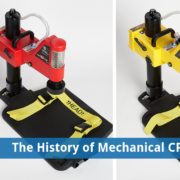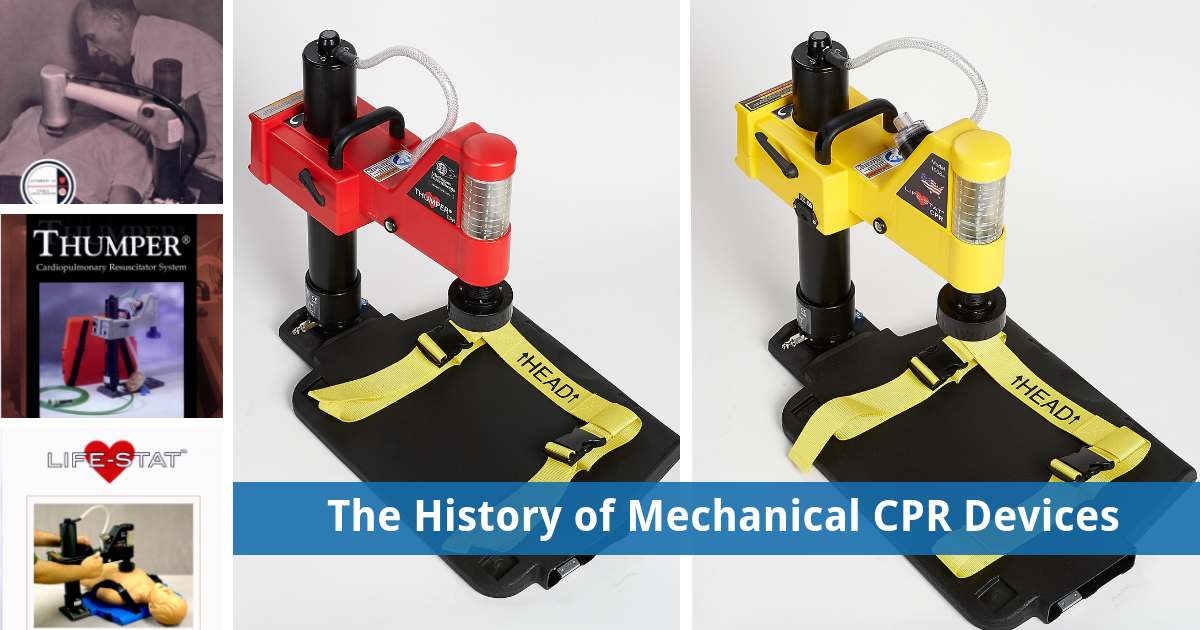Technology That Saves Lives
Fifty years ago, no one had heard of mechanical CPR, a device that has since saved thousands of lives. By providing hands-free external chest compressions, a mechanical CPR machine allows medical professionals to concentrate on other life-saving procedures, instead of performing manual CPR, to give the patient a better chance for survival.
Fifty years ago, the engineers at Michigan Instruments were hard at work developing this new technology. In 1964 they pioneered industry-leading mechanical CPR devices that provide the most critical component of CPR – solid compressions that circulate blood to the brain, quickly and effectively.
The Thumper® Mechanical CPR
The Thumper 1007CC is a mechanical CPR machine is capable of delivering continuous chest compressions to a patient in a state of acute cardiac arrest. The automatic compressions delivered by the Thumper are uninterrupted and exact.
Compression depth is easily adjustable from 0-3.2”, allowing treatment to be tuned to accommodate a wide range of patients.
The Thumper CPR device is also approved for off-level use, allowing perfect hands-free, automatic CPR to be delivered even if the patient is being transported down a flight of stairs.
Life-Stat® Mechanical CPR Machine with Oxygen Assist
The Model 1008 Life-Stat Mechanical CPR device is revolutionary technology resulting from more than 48 years of incremental development.
This innovative, automatic CPR machine provides unparalleled benefits including:
- hands-free, fully compliant 30:2 CPR
- hands-free fully compliant continuous AHA CPR
- adjustable compression depth
- the fastest switch-over from manual to mechanical CPR on the market
- the ability to accommodate both small and large patients
- hands-free CPR in any position with a secured patient
The Michigan Instruments Difference
There are many other mechanical CPR devices on the market. So what makes Thumper and Life-Stat different from other mechanical CPR devices?
Thumper and Life-Stat offer medical professionals the following advantages:
- Up to 50% deeper compressions and adjustable compression depths
- Accommodates patients twice the size of standard mechanical CPR devices — up to 550 lbs
- Easier patient transfer — can be used at 45° angle when transporting patients down staircases
- Lower cost —1/3 the price of most mechanical CPR devices, pricing starting at $4995
Michigan Instruments mechanical CPR products fully meet the 2010 AHA guidelines and are regularly recognized for initiating ROSC in cardiac arrest patients.
As the landscape of medicine changes, so must technology. Michigan Instruments is proud to lead the industry in refining and developing new technologies that are saving lives each and every day.




